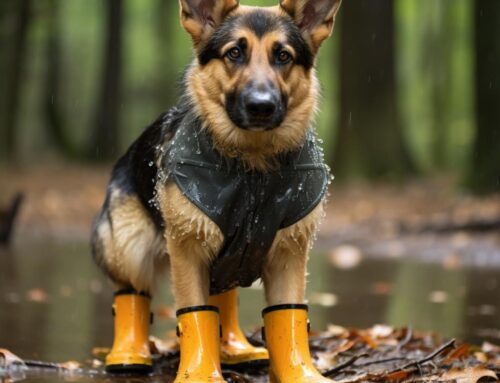During the holiday season, it’s common to see ads or websites for puppies for sale. The sellers may appear to be very friendly and knowledgeable, and their prices may appear to be quite reasonable, especially if you’ve done some homework, and you know how much certain breeds of dogs cost.
Unfortunately, all too often, these dogs for sale don’t actually exist, or, if they do, they aren’t dogs you want to buy. For example, they may be a product of puppy mills or other scams that defraud people of money. These mills and scams either deliver a dog with potential health problems, or, no dog at all.
Holiday Puppy Scams
In the past, such scams were fairly obvious. You’d see ads in the newspaper or on TV with puppies that looked like they were just hours old. The ads often claimed to be selling puppies from champion or purebred parents, and the price was usually very low.
Today, the scams are more subtle. Scammers use Facebook groups, Craigslist, and other online forums to sell their dogs. But the scammers aren’t necessarily interested in selling their dogs for the highest possible price. It’s more about quantity — they’re interested in getting their dogs into other people’s hands as quickly as possible.
Astoundingly, up to 80% of online puppy ads are fake. Up to 70% of respondents to these ads lose their money when answering them.
Steps You Can Take to Avoid Being Scammed
Fortunately, there are a few steps you can take to avoid puppy scams:
- Always ask for the seller’s name and phone number, and ask him or her to call you at a specific time of day so you can see the number they’re calling from. Ask for references, and call the references. If a seller says he or she can’t be bothered to provide references, you might want to rethink the purchase.
- Never wire money or use a wire transfer service to buy a dog online. It’s easy for scammers to use phony credentials or business information, including fake names, addresses, and phone numbers. Wire transfers are almost impossible to reverse, and once money is transferred out of your account, you likely won’t be able to get it back. Be especially wary of being asked to send or wire money to a third party (not the seller).
- Always meet in person to buy a dog. Yes, it may be hard to arrange travel plans to meet a seller, but it’s almost always safer than buying a dog online. You have a much better chance of seeing the dog in person to verify the seller’s claims; you can meet the seller and the dog during the day at a public location to make sure everything checks out. Unfortunately, the hard truth is that if you can’t meet a seller and can’t see a dog in person, then the seller’s offer may be a scam.
- Never give money to a seller or breeder before you’ve seen the dog and verified its health, age, and identity. It’s not uncommon for a scammer to email a stock photo of a dog and then tell you that the specific dog you wanted is actually in the hospital. Or you may hear that the dog has been stolen, and the seller needs to pay reward money to get the dog back. Scammers know that a cute-looking puppy in a cute-looking photo can turn a buyer’s heart upside down, and, in many cases, the buyer will do anything to get the dog they wanted. To make sure you aren’t scammed, always do a reverse Google Image Search on a puppy’s photo to check that the photo wasn’t taken from another source or website.
Further Recommendations
If you’re looking to get a new dog, always check with your local animal shelter to see if there are any that are available for adoption.
If you’re buying from a private puppy seller or breeder, check to see if they’re a member of the Pet Industry Joint Advisory Council, a nonprofit organization that works to protect consumers from puppy mills. Also, look to see if the seller or breeder is a member of any national breed club and/or the American Kennel Club (AKC). Breeding dogs is a serious business, and it should be taken seriously. The AKC can be a great resource for finding a reputable breeder, particularly for purebred dogs.
Another way to avoid puppy scams is to visit a breeder’s facility. This can give you a good idea of whether or not the breeder is reputable and has a clean, healthy environment for their puppies. It’s often best to visit a breeder before a puppy is even born. Ask the breeder questions, including how many litters they’ve had, and how many puppies they’ve sold. A good breeder will be able to tell you the history of their dogs and the lineage of a dog’s parents.
In fact, a breeder should let you meet the parents of any puppy they’re selling. The parents should be in good health and should look like their breed. If the puppy’s parents look unhealthy and/or don’t look like their breed, you should probably stay away from the puppy that’s being sold. You can also ask the breeder to show you a copy of the puppy’s parents’ registration papers. If the breeder can’t or won’t do this, you might want to rethink the purchase. And if a breeder is unwilling or unable to show you the puppy’s parents at all, it’s best not to buy from them.
Most reputable breeders will want to know about your experience with pets, why you want a dog, what kind of dog you’re looking for, and your vet history. They’ll usually ask for an application that includes information about you and your family, including the ages of your children and whether your kids have been around any animals. The breeder may even want to visit your home.
Reputable breeders should provide you with a health guarantee and genetic testing for your puppy — puppy mills typically provide neither of these. Puppy mills may offer you a “limited” AKC registration, whereas reputable breeders should give you full registration papers. Reputable breeders will tell you to take your puppy to the vet within the first 24 hours.
In general, you should always be wary if a breeder or seller doesn’t provide:
- References
- Business information, including the number of years they’ve been in business
- A contract
- A bill of sale
- Health guarantees
- A return policy
And beware of any sellers’ ads that advertise:
- Uncommonly low prices
- A separate fee for shipping or delivery of a puppy
- Assurances that a puppy is “already housebroken”
- Puppies with “too cute” names
- Puppies from “show dogs” or “stud dogs”
While the holidays may be a time to add a new pup to the family, it’s important to do your due diligence to help ensure that your new addition is secure.








